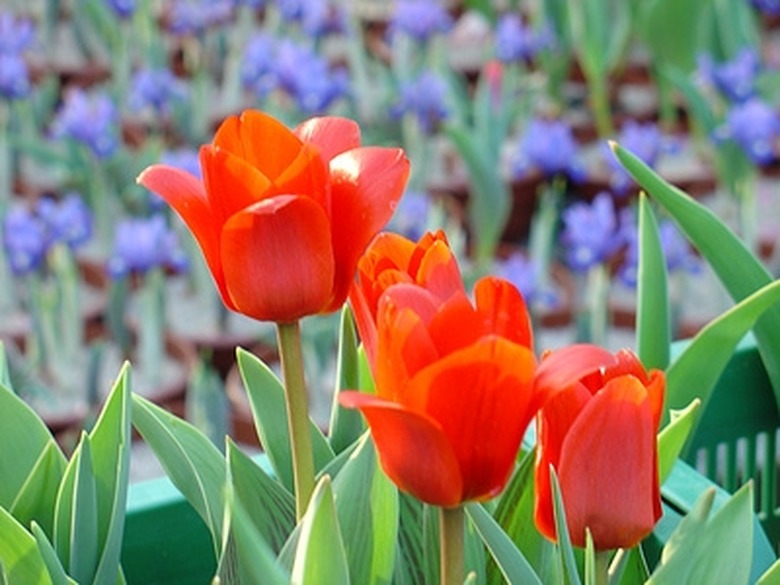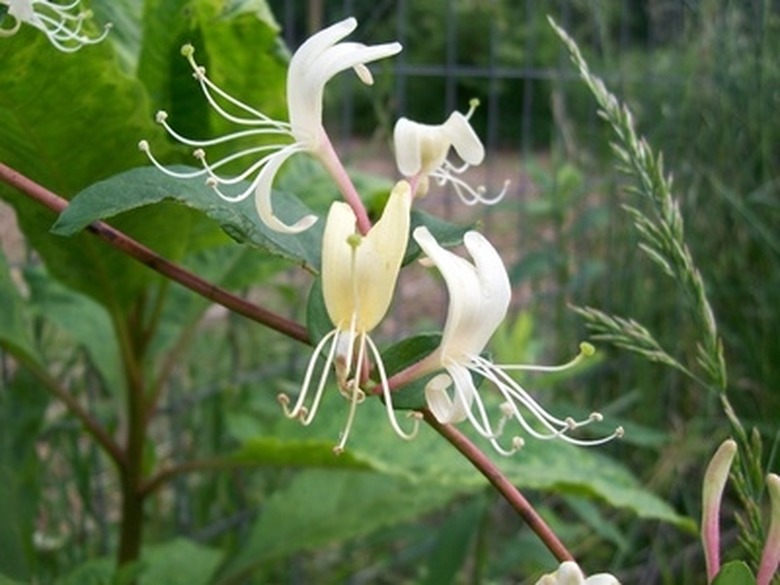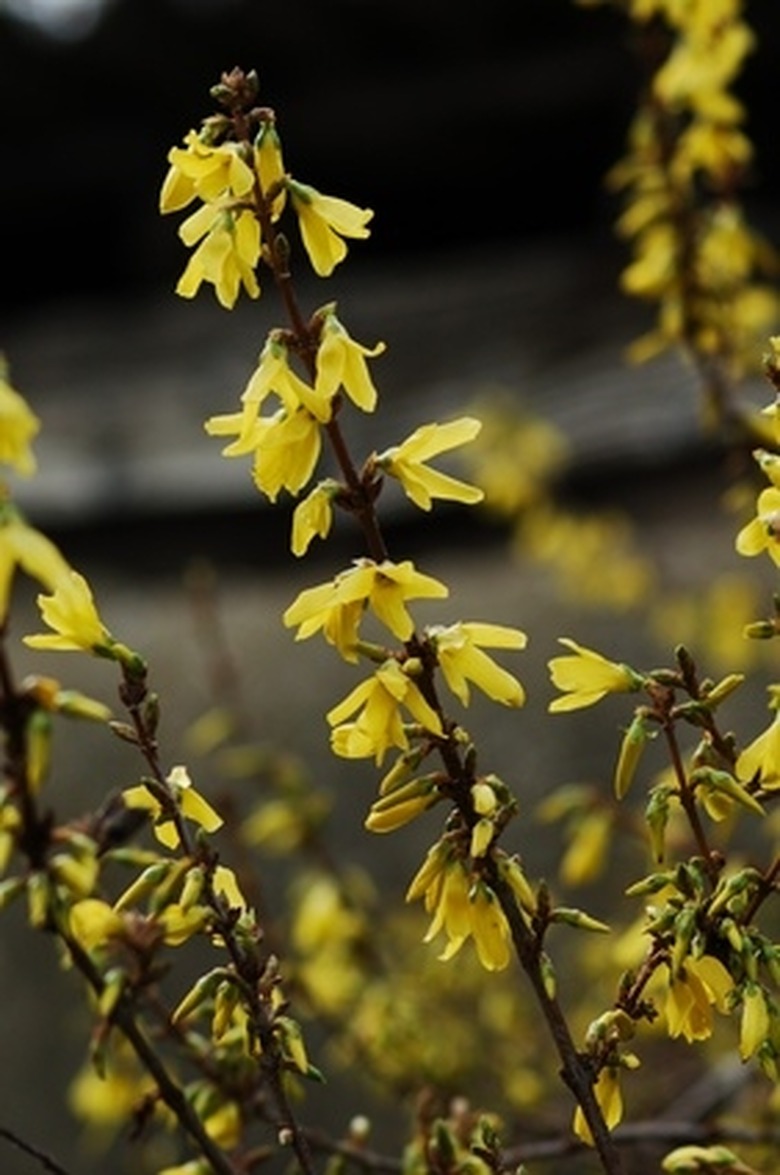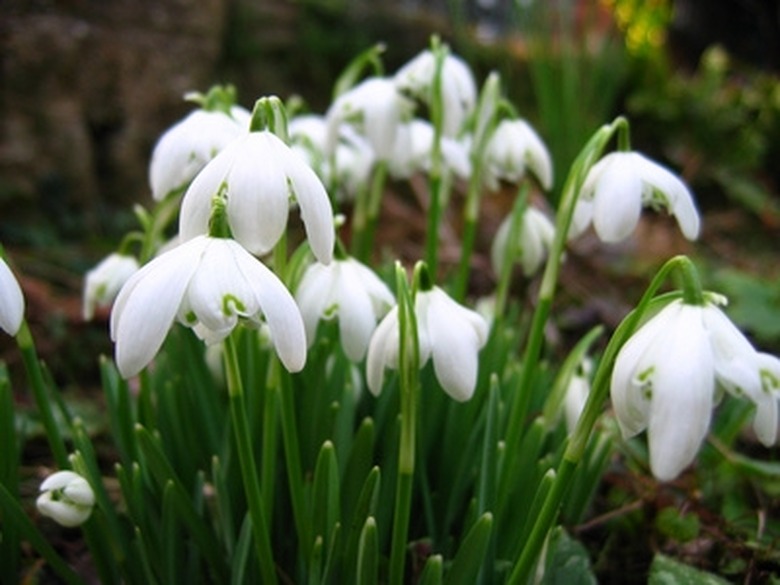Flowers That Grow Fast During Winter In Washington
Step 1
For generations, forced bulbs have provided a way for people to enjoy winter blossoms indoors. Hyacinth, narcissus, tulip, iris, gladiolus, dahlia and calla lily bulbs can all be forced. Although bulbs must be purchased and chilled at the beginning of autumn, they will bloom a few weeks after their chilling periods are over. Typically, bulbs must be chilled for eight to 15 weeks, but you should follow the individual guidelines for chilling each flower. Pot bulbs and store them at 35 to 45 degrees Fahrenheit. If you store bulbs in your refrigerator, keep them far away from fruits and vegetables. Once their chilling periods end, place them in a warm, sunny area. You should have beautiful flowers in a few weeks.
Step 2
- For generations, forced bulbs have provided a way for people to enjoy winter blossoms indoors.
- Typically, bulbs must be chilled for eight to 15 weeks, but you should follow the individual guidelines for chilling each flower.
Japanese Honeysuckle
Step 1
An extremely hardy, vigorous perennial, this vine also grows with extreme speed. Japanese honeysuckle can be considered invasive, because it is known for taking over yards and gardens. It blooms throughout the summer and well into early winter, giving highly perfumed white and pink blossoms. Confine the honeysuckle to a container and prune it frequently to keep it from competing with other plants in your garden.
Viburnum
Step 1
Viburnum shrubs possess aromatic pink blossoms, which can emerge as early as December or as late as March, depending on the cultivar. This fast-growing evergreen shrub makes for excellent hedges, because it tolerates shady, cool conditions with equanimity.
White Forsythia
Step 1
A deciduous shrub, white forsythia blossoms in late winter, submitting delicate white blooms with an almond-like scent. This bush works well for almost any area of the Pacific Northwest yard, because it loves partial shade and moist soil.
Step 2
- An extremely hardy, vigorous perennial, this vine also grows with extreme speed.
- This fast-growing evergreen shrub makes for excellent hedges, because it tolerates shady, cool conditions with equanimity.
Winter Jasmine
Step 1
This scentless evergreen vine possesses bright yellow flowers in late winter and resists low temperatures well. Quick and verdant in its growth, winter jasmine can be used to adorn fences, walls or arbors. It loves to twine itself around structures.
Other Winter Flowers
Step 1
While these flowers do not grow quickly, they can provide lovely winter blossoms. Camellia sasanqua, a hardy evergreen shrub, yields beautiful pink blooms until well into January. The Daphne family of shrubs offers famously fragrant winter flowers. Scottish heather tolerates cool, damp conditions while providing charming autumn flowers and vivid winter foliage. Hellebore cultivars bloom as early as December, presenting ornate flowers in a range of colors. Snowdrop bulbs must be planted in summer, but will bloom gloriously by late February. Although sweet box grows slowly, this evergreen ground cover boasts pretty white blooms that are redolent with fragrance. Witch hazel shrubs may take time to establish themselves, but their sweet-smelling red, orange and yellow flowers make them well worth the trouble.
Step 2
Step 3
- This scentless evergreen vine possesses bright yellow flowers in late winter and resists low temperatures well.
- Snowdrop bulbs must be planted in summer, but will bloom gloriously by late February.




